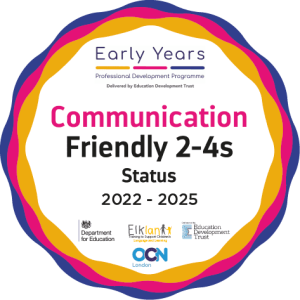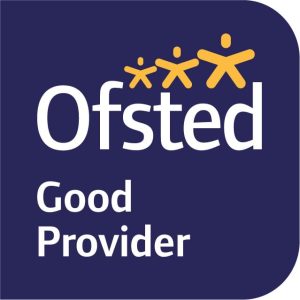At Aclet Close Nursery School, we regard the safeguarding of children as our main priority. We believe that we all have the right to be happy, to be safe and to learn. We all have the responsibility to make this happen.
Everyone who comes into contact with children and families has a role to play in safeguarding children. School staff are particularly important as they are in a position to identify concerns early and provide help for children, to prevent concerns from escalating.
We will ensure that:
- the welfare of the child remains paramount
- all children whatever their age, culture, disability, gender, language, racial origin, religious beliefs and/or sexual identity have the right to be protected from harm
- all suspicions and allegations of abuse will be taken seriously and responded to swiftly and appropriately
- all staff and volunteers working at our school have a responsibility to report concerns to the Designated Lead for Child Protection
Areas of Safeguarding
Our safeguarding policies cover all areas of school life and include:
- Staff and visitors, ensuring they are vetted, informed and trained
- children’s behaviour, promoting safer and happier behaviours and lifestyle
- parents and carers, promoting links and supporting families
- premises, keeping them safe, pleasant and fit for purpose
- curriculum, providing positive, life affirming learning experiences
- outside school, ensuring safer activities and environments outside school
Members of staff and governors responsible
We are all responsible for ensuring that each child remains safe, however Designated Lead professionals are:
- Designated Safeguarding Lead: Mrs Lisa Jenkins, Head Teacher
- Designated Deputy Safeguarding Lead: Mrs Suzanne Staines, Deputy Head Teacher
- Designated Safeguarding Governor: Mrs Rebecca Garfield
Safer Recruitment
We follow strict procedures to ensure that everyone who works with our children is vetted, keeping our children as safe as possible. On-going checks and ‘whistle blowing’ are in line with the current policy.
Staff Training
- staff are trained in child protection issues and they are aware of the procedures to follow
- staff are encouraged to be vigilant in order to maintain the safety of our children
- all staff and governors are directed to the document
- Keeping Children Safe in Education 2023
Child Protection with Safeguarding Policy
All staff have an up-to-date understanding of safeguarding children issues and are able to implement the safeguarding children policy and procedure appropriately. Policies are in line with the current guidance and procedures.
Staff are able to respond appropriately to any:
- significant changes in children’s behaviour
- deterioration in their general well-being
- unexplained bruising, marks or signs of possible abuse
- signs of neglect
- comments children make which give cause for concern
All staff are aware of the need to maintain privacy and confidentiality.
What to do if you are concerned for the safety of a child (out of school hours)
Child abuse can have major long-term effects on all aspects of a child’s health and well-being. Children and young people are dependent on others for their survival and have a right to be protected and to have someone who will act on their behalf.
If you have a concern about a child or young person or are having difficulties in your own family, First Contact is the service to call. First Contact brings together staff from Children’s Services with partners such as Durham Constabulary and Health practitioners.
Call First Contact on 03000 26 79 79 More information is available on their website
Remember that if you suspect a child or young person is at immediate risk of harm then phone the Police on 999.
NSPCC can also take a referral, by telephone or online.
By telephone:
- Lines are open Monday to Friday 8am – 10pm and 9am – 6pm at the weekend.
- Telephone 0808 800 5000
- NSPCC Website
Barnardo’s: Protecting children
Covid 19 Information
Information Sharing
We have an obligation to obtain necessary information from parents in advance of a child being admitted to school, including:
- emergency contact numbers
- the child’s special dietary requirements, preferences or food allergies the child may have
- the child’s special health requirements
- information about who has legal contact with the child; and who has parental responsibility for the child
PARENTS AND CARERS MUST TELL US OF ANY CHANGES TO THESE DETAILS
We take confidentiality very seriously. Any information which we hold is treated as confidential and shared on a ‘need to know’ basis.
Links with External Agencies
Because our first concern must be the well-being of your child, there may be occasions when we have to consult other agencies before we contact you. The procedures we have to follow have been laid down in accordance with the Local Authority child protection procedures.
We are fortunate to be supported by a range of external agencies which can be called upon to support the work we do in school. They include Health Visitors, Health Practitioners, Educational Psychologists, Child and Adolescent Mental Health Services, Behaviour Support, Social Services, and Special Educational Needs professionals.
Reporting Concerns or Complaints
We also have a school complaints policy. This enables children, staff and carers to report anything they feel is a concern.
Concerns should be raised in the following order.
- to a member of staff, then if there is no resolution;
- to the Head Teacher, then if there is no resolution;
- to the Chair of Governors, then if there is no resolution;
- to the Local Authority
All contact details are available from the school office.
Review of Policy and Practice
In order to ensure best practice is maintained, our polices are reviewed regularly to incorporate the latest statutory guidance. If you would like more information on safeguarding, please contact the school for all our policies or view our policies section on our website.






